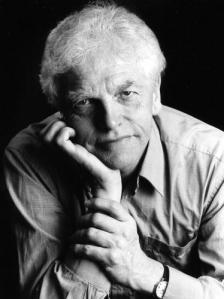On the subject of the string quartet: a stellar performance by Peter Lovesey
When I finished Cop To Corpse by Peter Lovesey, I thought to myself, It doesn’t get any better than this. I was wrong; it does.
The Tooth Tattoo is the story of a highly regarded quartet of stringed instrument players. The sudden loss of their violist has for a time taken them out of the game. Now they want back in and are actively seeking a new violist. They’ve heard Mel Farran play, and they like what they’ve heard. They’re more and more certain that he’ll be a good fit for their small elite ensemble.
They call themselves The Staccati, and Peter Lovesey lays bare the inner workings of this foursome in a way both fascinating and completely believable.
Mel is deeply grateful to be part of the quartet, and he feels challenged to get his playing up to their high standard while at the same time achieving a perfect blend with the group:
He’d need to fit in more practice. In spite of the praise from the others, he knew Ivan was right. His intonation – accuracy of pitch – could be improved. With such latitude possible in their creation of sound, string players had a huge advantage over anyone else in an orchestra, yet there were phases, say in a long legato line with open strings, when the pitch should be suppressed. He’d noted a couple of passages in the Beethoven when he needed to adapt better to the violins.
The pitch should be suppressed? I admit, I don’t entirely understand what’s being said here, but I do get the point about the unique capabilities of stringed instruments.
You wouldn’t think that the lives of these intense and dedicated artists could intersect with a criminal investigation, but that’s exactly what happens. For a limited period, the Staccati take up residence at Bath Spa University. It’s an arrangement that benefits them, the university community, and local music lovers. This last is not a cohort with which Peter Diamond, head of the Bath CID, would ordinarily be associated. But he comes to a cautious appreciation of the music itself and of those who bring it so exquisitely to life.
Although Peter would be the first to admit that he’s no ‘culture vulture,’ he can nevertheless shoot the breeze with the best of them:
“Beethoven, wasn’t it?” Diamond ventured.
Anthony was supposed to get the idea that Diamond was a fellow lover of music. He didn’t show a glimmer of appreciation.
“I couldn’t place the piece,” Diamond added, which was true. He was about as capable of placing a piece of Beethoven as he was of riding a Derby winner. “Do you mind telling me what it was?”
Opus 59, Number 3,” Anthony said.
“Silly me. I’m a duffer with numbers.”
“In C major.”
“C major.” Diamond raised his thumb as if all had been made clear. “Any particular part?”
“The fugue.”
“And to me it sounded just as a fugue should.”
“It was too fast.”
“A shade quick, I’ll give you.”
Here it is:
Peter does in fact he does have a passion for certain works of art. In fact, the only way his lady friend Paloma could get him to take a vacation in one of the capitals of continental Europe was by choosing Vienna, the setting of Peter’s favorite film, The Third Man.
The Third Man is terrific. It’s hard to see how it could be anything but, with stars like Orson Welles, Joseph Cotten and Trevor Howard, and a screenplay by Graham Greene.

The ‘Wiener Riesenrad’ (Viennese Giant Wheel) in the Prater amusement park, where Harry Lime/Orson Welles makes his famous Cuckoo Clock speech
Inevitably in a Peter Diamond novel, we’re treated to a disquisition on some notable feature of the City of Bath. This time it’s Sydney Gardens, “a haven of quiet in a busy city” and, during her sojourns in Bath, one of Jane Austen’s favorite haunts: 
Literate, entertaining, and wide-ranging, The Tooth Tattoo is a triumph, one of the best novels by one of the greatest procedural writers currently at work.
***********************************
The Staccati also perform one of my favorite pieces: String Quartet No.14 in D minor, known as Death And the Maiden, by Franz Schubert. Her it is, performed by the Alban Berg Quartet:


Leave a comment